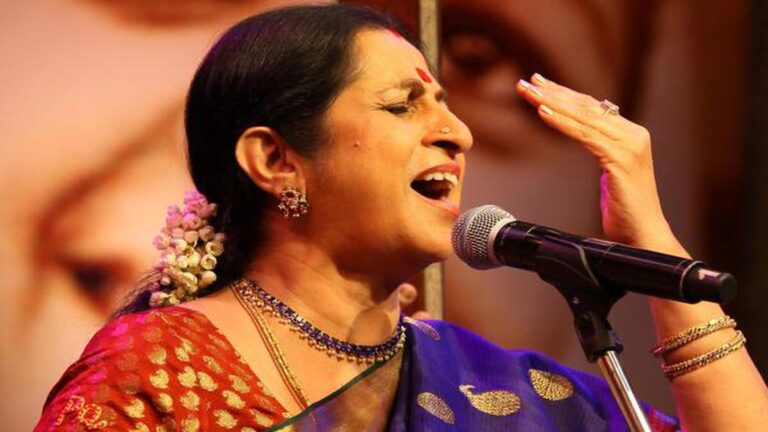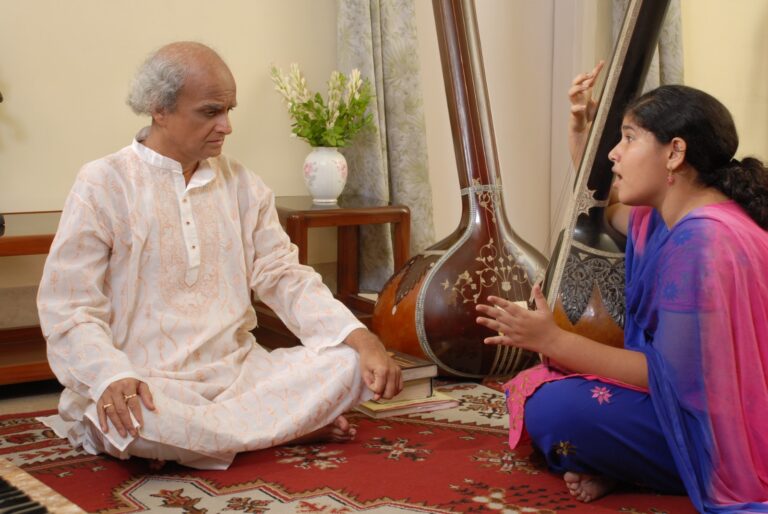How to Improve Your Vocal Techniques in Hindustani Music
Mastering vocal techniques in Hindustani classical music is a journey that requires dedication, patience, and proper guidance. This art form demands a high level of precision, control, and emotional expression. Here are some essential tips to enhance your vocal abilities:
Fundamental Vocal Techniques

- Posture: Maintain a straight and relaxed posture. Good posture ensures optimal breath support and vocal resonance.
- Breathing: Develop deep and controlled breathing. Diaphragmatic breathing provides the necessary support for sustained notes and powerful vocal delivery.
- Resonance: Focus on developing a rich and resonant tone. Explore different vocal registers and learn to blend them seamlessly.
- Articulation: Clear and precise articulation of words and phrases is crucial for effective communication.
- Dynamics: Master the art of varying vocal intensity, from soft and delicate to powerful and forceful.
Specific Vocal Exercises
- Saragam Practice: Regular practice of sargam (vocalizing the notes of a raga) helps in developing vocal flexibility, accuracy, and range.
- Alankar: Alankar exercises, which involve intricate melodic patterns, enhance vocal agility and control.
- Taana Practice: Practice taanas (rapid melodic runs) to improve vocal dexterity and speed.
- Aalap: Engaging in alaap (improvised melodic exploration) helps develop creativity, phrasing, and emotional expression.
- Vocal Warm-ups: Incorporate vocal warm-ups to prepare your vocal cords for practice or performance.
Listening and Observation

- Listen to Masters: Immerse yourself in the music of renowned Hindustani classical vocalists. Analyze their techniques, phrasing, and emotional expression.
- Attend Live Performances: Experience the magic of live performances to gain insights into nuances and subtleties.
- Record Yourself: Regularly record your practice sessions to identify areas for improvement.
Consistent Practice
- Regular Practice: Consistent practice is key to developing vocal skills. Dedicate specific time each day to practice.
- Seek Guidance: Learn from a qualified Hindustani classical vocal teacher who can provide personalized guidance and feedback.
- Patience and Perseverance: Vocal development takes time. Be patient with yourself and persevere through challenges.
Vocal Care

- Hydration: Drink plenty of water to keep your vocal cords hydrated.
- Avoid Irritants: Avoid smoking, excessive alcohol consumption, and exposure to pollutants.
- Rest: Ensure adequate sleep to allow your vocal cords to rest and recover.
Additional Tips
- Experiment with Different Ragas: Explore a variety of ragas to expand your vocal range and versatility.
- Collaborate with Instrumentalists: Collaborating with instrumentalists can enhance your rhythmic sense and ensemble playing.
- Record Yourself: Regularly record your practice sessions to monitor your progress and identify areas for improvement.
Remember, mastering vocal techniques in Hindustani classical music is a lifelong journey. Embrace the process, enjoy the learning experience, and most importantly, find joy in your musical expression.
For more information and exciting resources about learning music, visit our website at The Mystic Keys. For more music content and exciting offers follow us on








